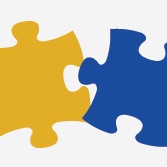Powerfull Voice of Kids - Digital & Media Literacy Education
- Our Values
This is what we value.
-
 Harnessing Engagement and MotivationWhen integrated into the elementary curriculum, digital and media literacy addresses some of the very real challenges of contemporary education. Many children are disillusioned with school by the time they reach Grade 3 and negative attitudes about school and learning often intensify during Grades 4 - 6 when students form beliefs and attitudes about school, teachers, and their own capabilities as readers and learners. Because children spend so much time with television, music, the Internet, videogames and other media, exploration of mass media, popular culture and digital media gives children a sense of agency and power that keeps them engaged in learning. We believe that literacy and communication skills develop when children are engaged and motivated in learning.
Harnessing Engagement and MotivationWhen integrated into the elementary curriculum, digital and media literacy addresses some of the very real challenges of contemporary education. Many children are disillusioned with school by the time they reach Grade 3 and negative attitudes about school and learning often intensify during Grades 4 - 6 when students form beliefs and attitudes about school, teachers, and their own capabilities as readers and learners. Because children spend so much time with television, music, the Internet, videogames and other media, exploration of mass media, popular culture and digital media gives children a sense of agency and power that keeps them engaged in learning. We believe that literacy and communication skills develop when children are engaged and motivated in learning. -
 connecting classroom to cultureResearch shows that literacy skills develop at the intersection between school practices and the literacy practices outside of school. However, many literacy programs for children ignore or trivialize students' out-of-school experiences, leading to disenfranchisement with school. We believe that teaching children how to use expression and communication for personal and community advocacy can strengthen literacy and problem-solving skills which contribute to academic success.
connecting classroom to cultureResearch shows that literacy skills develop at the intersection between school practices and the literacy practices outside of school. However, many literacy programs for children ignore or trivialize students' out-of-school experiences, leading to disenfranchisement with school. We believe that teaching children how to use expression and communication for personal and community advocacy can strengthen literacy and problem-solving skills which contribute to academic success. -
 asking questionsChildren who ask questions and use digital technology tools can become energized by the process of learning about the world around them. Educators and parents can use simple strategies for making screen activities like using apps into opportunities to develop critical thinking and communication skills. We believe that learn to ask questions is the key to developing intellectual curiosity and becoming an independent learner.
asking questionsChildren who ask questions and use digital technology tools can become energized by the process of learning about the world around them. Educators and parents can use simple strategies for making screen activities like using apps into opportunities to develop critical thinking and communication skills. We believe that learn to ask questions is the key to developing intellectual curiosity and becoming an independent learner.

